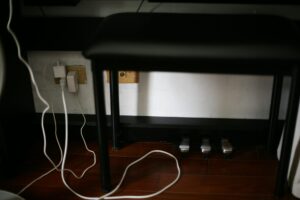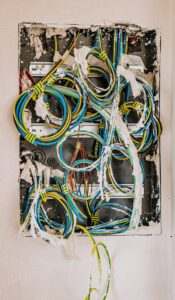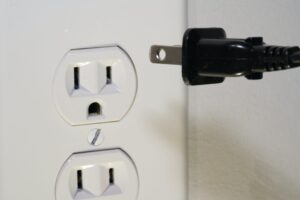
How to Safeguard Your Home from Electrocution Hazards
If you want to prioritize the well-being of your loved ones, you need to take measures to safeguard your home from electrocution hazards. Electrocution risks can lurk in various corners of your living space, but with the right knowledge and proactive steps, you can significantly reduce these dangers! So, let’s go over the tips and precautions to create a secure environment where the chance of accidents is minimized!
Safety measures for electrical outlets
Safety measures for outlets are crucial in preventing accidents and avoiding dealing with the guilt that often follows them. Installing tamper-resistant outlets is a wise choice, especially in homes with young children, as they have built-in safety features to prevent electrical shocks. Properly using outlet covers and safety caps can add an extra layer of protection by covering unused outlets, too, keeping curious fingers at bay. Ground Fault Circuit Interrupters (GFCIs) are vital additions, as they quickly cut off power in case of a fault, minimizing the risk of electrocution.

Managing electrical cords and extensions
Managing cords and extensions the right way is a great way to safeguard your home from electrocution hazards. Overloading circuits with too many devices can lead to overheating and pose a fire hazard. Furthermore, ryderrelocations.com warns you to be careful when storing your cords and extensions. Avoid tightly coiling them, as this can cause them to kink and weaken over time. Instead, use a cord reel or organizer to keep them neat and prevent tangling. Regularly inspect cords for damage; if you find any fraying or exposed wires, replace them immediately. Finally, unplug appliances and devices to reduce the risk of fires and save on energy costs when not in use.
Maintaining your home’s wiring
Maintaining your home’s wiring is essential to ensure a safe and reliable electrical system. Over time, wiring is pretty much guaranteed to deteriorate. It can happen due to wear and tear, pests, or outdated materials. Regular inspections identify signs of trouble, such as frayed insulation, exposed wires, or scorch marks. Hiring a professional electrician for thorough assessments and timely repairs is a wise investment. Upgrading to modern wiring options, like copper or aluminum, can also enhance safety and efficiency. Furthermore, ensuring your electrical system meets current building codes is essential to avoid potential hazards. A well-maintained wiring system reduces the risk of fires and accidents and provides a more dependable power supply for your home!

Outdoor electrical safety
Protecting outdoor outlets and fixtures from moisture is a primary concern. Consider using weatherproof covers for outlets and enclosures for fixtures to prevent water intrusion. Proper grounding of outdoor electrical systems is essential to reduce the risk of shocks and fires. Hiring a qualified electrician to install and maintain these systems is advisable. Also, when using outdoor devices, always ensure they are rated for outdoor use and keep them away from water sources.
Childproofing for electrical safety
To protect your home from electrocution hazards, install childproof outlet covers and safety caps on all accessible outlets. These inexpensive devices prevent curious little fingers from coming into contact with live outlets. Furthermore, educate your children about the dangers of electricity and the importance of not playing with cords or outlets. Supervise them closely around appliances to ensure their safety, too. Keep cords and cables out of reach or use cord organizers to prevent tripping hazards and discourage tugging. Secure heavy appliances and electronics to prevent tipping accidents as well. Finally, teaching children early about safety and taking proactive measures can significantly reduce the risk of accidents and injuries.
Using appliances safely
Regularly check appliances for damage or wear, as damaged cords and faulty components can pose significant hazards. Unplug appliances when not in use, which conserves energy and reduces the risk of fires. Store appliances properly, too, away from water sources or areas where they can get knocked over. Additionally, follow manufacturer guidelines for maintenance and cleaning, as neglecting these can lead to malfunctions. Prioritizing responsibility and safety in your home is essential, as appliance-related accidents can result in property damage or personal injury. After all, if you’ve had trouble renting already, such as dealing with a criminal record, responsibility should be your first priority! So, taking simple steps to ensure the safe use and storage of appliances should be the least you can do.

Emergency response
Emergency response is crucial when dealing with accidents; knowing how to react promptly can make a significant difference. In the event of an electrical accident, ensuring the safety of everyone involved should be the top priority. First, assess the situation from a safe distance and call emergency services if needed. If it’s safe to do so, turn off the power source or unplug the affected appliance to prevent further harm. However, never touch the victim while still in contact with the electrical source. Instead, use a non-conductive object like a wooden broom handle to carefully move them away. It’s essential to have basic first aid training, as administering CPR or providing assistance until medical help arrives can be life-saving. Remember, dealing with accidents the right way can minimize injuries and ensure the best possible outcome in critical situations!
Creating an electrical safety plan
Creating an electrical safety plan is a proactive step to safeguard your home from electrocution hazards. Start by developing a safety checklist that covers regular inspections of outlets, cords, and appliances. Ensure that every family member is aware of the plan and their role in maintaining electrical safety. Furthermore, keep the plan updated to incorporate changes in your home’s electrical system. Finally, involving everyone in your household ensures they understand the importance of electrical safety and know what to do.
Approach protection systematically
With everything we covered, you should have no issues working to safeguard your home from electrocution hazards effectively. By staying vigilant, inspecting your electrical systems, and implementing safety measures, you’re taking proactive steps toward ensuring the well-being of your household! So, this should go a long way towards ensuring that your fears of electric hazards don’t come to fruition.
